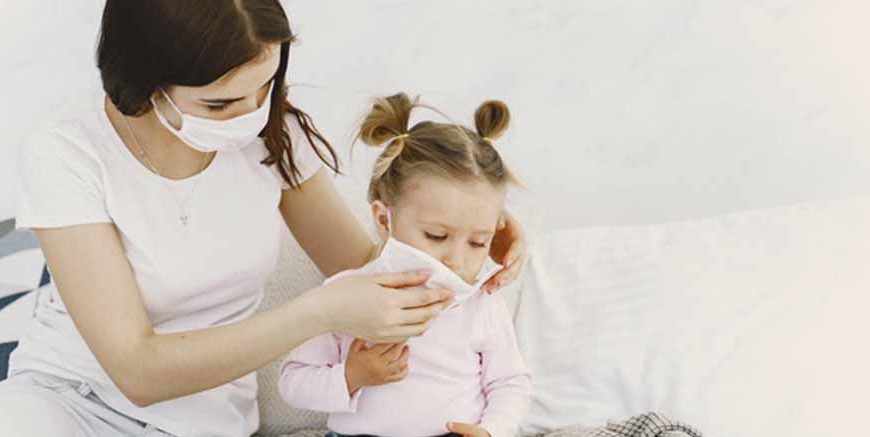We think all parents want their children to avoid diseases as much as possible. Children of the toddler age can be especially vulnerable to getting sick because their immune systems are still developing, and often put things in their mouths. But don’t worry! As mentioned above, there are many tips and tricks with the help of which it will be easier to stay healthy with a child. Now let us give some tips about how to strengthen your toddler’s immune system and get a better environment for developing properly.
Table of Content:
- How to Avoid Getting Sick
- Ways to Prevent Getting Sick
- What to Take Before Getting Sick
- How to Never Get Sick
How to Avoid Getting Sick
The best line of defense against getting ill is to prevent germs and viruses from coming in contact with the body. Here are some key strategies:
- Handwashing is key: Explain to your toddler that they need to wash their hands often with soap, such as in the morning before a meal, after using the lavatory or playing in the sandpit. Make it fun by singing a song or using colorful soap.
- Keep surfaces clean: Frequent cleaning of frequently touched items or objects in your home include doorknobs, light switches and toys.
- Avoid sick contacts: If at all possible,avoid having your toddler near sick individuals. This might mean the child cannot go out to play, or cannot visit a friend or extended family because he or she has a cold or is having a bad flu.
- Practice good hygiene: Make sure that your child, if he or she starts coughing or sneezing, should follow this directive and immediately put a hand over his or her mouth and nose, preferably using the elbow rather than hands.
- Boost indoor air quality: Also use air purifiers and in ensuring adequate ventilation, open windows especially during fair weather.
Question for you: Of all the strategies you have outlined, which of them does it prove most difficult to employ with your toddler?
Ways to Prevent Getting Sick

Prevention goes beyond just avoiding germs. Here are some proactive steps you can take:
- Prioritize sleep: See that your toddler is taking enough rest. This age group of children should get 11-14 hours of sleep, including nap time. In simple terms this indicates that if the body is issued well then it will be in a good stead to combat infections.
- Encourage a balanced diet: Hunt them down to a supermarket and allow them to select their own fruits, vegetables, whole grain products and lean meats. These include micro-ingredients that enhance the immunity system of the body because they are forms of nutritional products.
- Stay hydrated: Ensure your child takes as much water as possible during the day. If the body is without water toxins build up and the mucous lining of the body becomes dry and cannot trap the virus before it enters into the body system.
- Promote physical activity: The immune system is strengthened by exercise. Ideally, dedicate at least an hour of each day to playing forty-five minutes of vigorous activity of moderate intensity. Try to set aside an hour daily for active play.
- Reduce stress: The immune system is increased through exercise. Try to spend 1 or more hours being active each day.
- Interactive element: Try creating a “health hero” chart with your toddler. Every time they do something good for their body (for instance, eating a vegetable or playing outside) they earn a sticker. As we are sure you can now relate to, identifying fun ways of encouraging healthy habits can be rather creative?
What to Take Before Getting Sick
Although many of us cannot avoid getting sick, we can bolster our health defenses against the common flu or any other diseases:
- Multivitamins: Inform your doctor about a child-safe multivitamin to take alongside the toddler’s meals.
- Probiotics: Certain of these bacteria can be friendly to the gut and may also help the human immune system get stronger. You should look for a probiotic supplement that is children friendly or include foods containing probiotics, such as yogurt to the diets.
- Vitamin D: Very important especially especially if during winter there is little sunlight or if the child has not at all come into contact with natural light. Again on this one, regarding dosage consult your child’s pediatrician every time.
- Zinc: This mineral is involved in the immune processes in the organism. However, one would rather obtain zinc from lean meat, beans or nuts, your pediatrician may recommend you to supplement.
- Omega-3 fatty acids: These health enhancing fats include the fatty fishes, walnuts, flaxseeds and many more foods are good for general health and probably immunity as well.
- Remember: As when with any new supplement, consult your pediatrician first before giving it to your kid. What concerns may be asked from your child’s physician concerning supplements in enhancing the immune system?
How to Never Get Sick
- Vaccinations: Ensure that your toddler has received all immunizations on time if not they should be given immediately. They have acted as an important treatment of serious diseases and the best way of avoiding them is through vaccination.
- Breastfeeding: If your child is less than 2 years old and still has a while with Mama’s milk, then it is not wrong to continue breastfeeding if it is okay for both of you. Any lady who boobs out feeds would agree with the above argument of breast milk having some ingredients that enhance the body immunity.
- Teach proper nose-blowing: Teach your toddler how to blow its nose correctly. This can ease the body removing germs before they form an infection.
- Avoid overuse of antibiotics: It must be understood clearly that antibiotics can only be bought over the counter from the chemist with the prescription of the doctor, and moreover it can only be used in case of bacterial infections. The main two, however, are the emergence of antibiotic resistance over a long period of time.
- Manage allergies: If your toddler’s immune system has developed an allergy, then the allergy has to be provoked to provide proper treatment with the help of your assistant – pediatrician. This is the case because allergies render children susceptible to infections in the first place.
- Limit sugar intake: Even, too much intake of sugar depresses the immune system. Better still go for natural occurrences such as fruits and not the processed ones such as cakes.
- Encourage outdoor play: This therefore means that taking a vacation to natural environments increases immunity. Also, it is an efficient source of vitamin D, which the body synthesizes with its help.
- Interactive challenge: Make a wellness wheel with your toddler. Illustrate a circle and in each part, list the possible health habits that patients should consider (such as sleeping patterns, eating, exercising and others). Color in each section as you complete the associated activities each day. How full can you make your wheel each week?


Recall always that anyhow we try to protect the children it is quite in order for them to have periodic sicknesses. These minor illnesses lead to strengthening the immune system of the body gradually. The idea is to develop a healthy pattern of living that will foster the development of your toddler’s natural immune systems.
Using these strategies ensures your little one receives the best chance of staying out of getting sick. Thank you for the helpful tips, parents, but don’t forget about yourself also. A healthy family starts with healthy caregivers.
What other tips or tricks have you found helpful in keeping your toddler healthy? Share your experiences and let’s learn from each other!
For more such interesting blogs, Visit EuroKids














